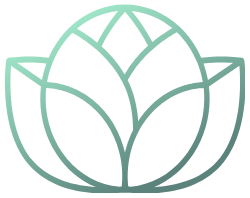Interdisciplinary thinking is, at worst, not thought of — at best, not encouraged.
So it seems we want an overspecialized society. Now I get it — if you’re asking me if I want my doctor to be specialized or not? Well, touché…
Now spare me a bit, and riddle with me through the following thoughts to arrive at your own conclusion.
If we live in an interconnected world, that means answers to possible problems may be found in domains that seem to be completely “off” or have nothing to do with the issue at hand.
Let’s rewind time and ponder: how do computer science, math, and biology blend together into our understanding of reality?
The observation of animal patterns in nature that seem chaotic and completely uncertain — such as the stripes of a zebra or the rosettes of a jaguar — led by the initial efforts of Alan Turing to later contemplate whether people could actually use math to decipher the encrypted “code.”
Imagine asking a biologist the same question.
How could he pull from areas of knowledge such as math and cryptography to solve this code for his precious biological creatures?
I reckon he could not see the end result of his endeavor — because he died before he could crack the code — but that didn’t stop the forward motion he had already started.
Actually, it led to a further exotic figure, one who managed not just that specific conundrum but went further to even develop his own framework to better understand reality:
Benoit Mandelbrot
High degree of mathematical rigor, he understood chaos wasn’t just present in nature — it was nature all along.
There are no smooth mountains, or round lakes, or perfectly triangular branches.
So his framework on fractal geometry is interesting, to say the least… but he was just getting started.
He is one of the individuals who shaped financial understanding, and — in my view — is widely underrated.
He went on to challenge all financial orthodoxy, and I mean the bedrock of the financial “edge” at the time:
Efficient Market Hypothesis, Markowitz’s notion of risk and diversification, option pricing models such as Black-Scholes, etc.
How?
He had to summon cross-disciplinary knowledge outside of finance — from his expertise in mathematics, fractal geometry, chaos theory, and randomness in nature/life overall.
Heck, even psychology — he understood and acknowledged reflexivity.
Imagine asking your financial advisor to do the same.
Where is he going to pull that blend of knowledge that leads to breakthroughs or hidden insights?
Now let’s take another example — a bit more complex: an organism brought to life by humans — a business.
Let’s consider a small business, let’s say a cafeteria. Usually, these are led by the founder and a couple of employees.
How do they thrive in the complex business world? Will they be able to adapt and thrive?
Are they pulling from behavioral psychology to use anchor bias in their pricing, or demonstrate social proof in their menus?
Are they drawing from financial rigor to understand their margins, costs, and net income per product correctly?
Are they applying leverage and systems thinking to focus on the products and services that yield 80% of their income and scaling those?
Imagine asking all of that from a simple coffee lover who just wanted to make a living because he knows how to make the best coffee… (Don’t underestimate the power of a good coffee — he may crack the code.)
Ok, maybe you say this kind of blend is only for people who move the needle in entire fields due to their complete and vast skill sets and knowledge.
But fair enough — if we’re talking about business or investing, it shouldn’t be that complex, right?
Au contraire… dear reader.
If that is your conclusion, either you have not understood the root concept I’m trying to portray for you, or you are blinded by what I call:
The illusion of “understanding.”
Most things in reality are already “mapped out.” You don’t have to think about how electricity works to watch TV.
You don’t need to understand thermodynamics and entropy to use your AC or freeze your food. Neither deep REM cycles nor food chemistry to enjoy a good night’s sleep.
So that leads us to assume current understandings — or knowledge of things as learned from society — are “correct.”
And to be fair, that’s a fine heuristic — it helps reduce mental load and provides efficiency…
But it will lead to an inability to solve problems, question the status quo, and adapt down the road
The Blend
This blend — I admit — is rare, and most people probably won’t benefit as much from it.
But a deep inner curiosity and an ability to see the world through a different set of lenses has never done more harm than good.
If you already have a deep understanding of different areas of knowledge, maybe start blending — in ways you once thought incompatible, think of:
- Ballet and Darwinian evolution
- Computer science and behavioral psychology
- Chaos theory and longevity medicine
Draw parallels. Spot patterns. Notice contradictions. Heck, even try thinking about them in a different language or from a cultural shift.
“Because the future doesn`t belong to the specialists. It belongs to the blenders.”
